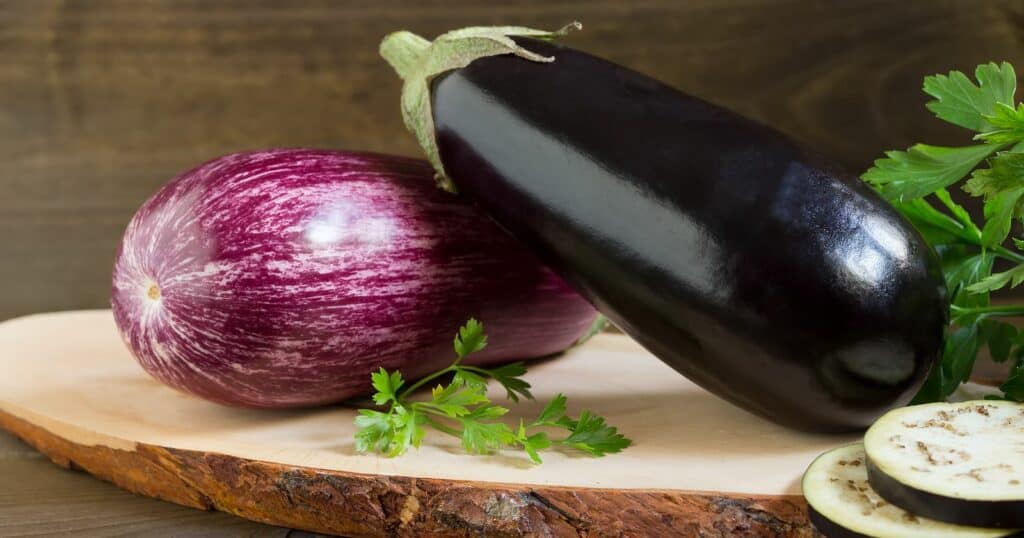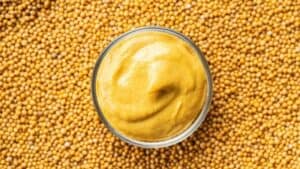You bite into a tender slice of eggplant parmesan, expecting a rich, savory flavor. But instead your mouth is hit with a fiery sting that leaves your lips and tongue tingling. If you’ve experienced eggplant’s agonizing burn, you’re not alone – and wondering why this vegetable inflicts such pain.
The truth is, eggplant contains some naturally-occurring compounds that can irritate the mouth’s sensitive tissues. For those with allergies or sensitivities, eggplant’s chemicals provoke inflammation, swelling, and a prickly burning sensation. The reaction varies based on your body’s unique makeup.
In this article, we’ll explore the scientific explanations behind eggplant’s mouth-scorching powers. From its plant chemicals to your own sensitivities, we’ll uncover the culinary chemistry behind this produce puzzle. Read on to learn how to prevent eggplant’s searing burn and continue enjoying its iconic place in your favorite Italian dishes. Let’s solve the mysteries of eggplant mouthfire once and for all!
Decoding Eggplant’s Chemical Mysteries
Eggplant contains some naturally-occurring chemicals that could spark mouth irritation for those sensitive. Two main categories of chemicals cause the effect:
Alkaloids – Eggplant contains low levels of alkaloids like solanine. In large doses, these defensive compounds cause toxicity. But even small amounts may trigger irritation.
Phenolics – Polyphenols give eggplant slight bitterness. For some, this elicits an undesirable prickly feeling.
Additionally, when cut, eggplant’s flesh reacts with oxygen, resulting in darker color. This chemical change may also contribute to potential mouth discomfort.
The Nightshade Connection

As a member of the nightshade family, which includes tomatoes, peppers, potatoes, and goji berries, eggplant contains trace amounts of alkaloids that are part of the plant’s natural defense system.
The most prevalent alkaloid found in eggplant is solanine. While eggplant has very low concentrations of solanine compared to other nightshades, for those sensitive, this compound can provoke irritation.
Solanine protects the eggplant from threats like fungi, insects, and animals. But when consumed by humans, even small amounts may cause burning or prickling sensations in the mouth.
This is because solanine can interact with nerve endings and taste receptors in the mouth and throat. The alkaloid stimulates these sensitive tissues, eliciting inflammation and pain responses.
Cooking eggplant thoroughly can help reduce levels of solanine. However, some individuals may be so sensitive that even tiny traces prompt mouth discomfort.
Reactions to solanine and alkaloids vary based on the person. But the nightshade connection helps explain why eggplant can cause a burning mouth for some people.
Allergies and Oral Allergy Syndrome
One of the most common reasons eggplant causes burning mouths is an allergic reaction or oral allergy syndrome (OAS). Those with sensitivities may experience:
- Itching, tingling lips, mouth, throat
- Swelling of lips or tongue
- Upset stomach, nausea
- Hives, rash
- Anaphylaxis (rarely)
With OAS, the body confuses proteins in eggplant for environmental allergens like pollen or latex. Cooking eggplant thoroughly can help reduce reactions.
Influence of Cooking Methods
How eggplant is prepared and cooked seems to impact the presence of irritating chemicals that can cause mouth burn.
Cooking methods like grilling, broiling, or roasting eggplant appear to degrade compounds like histamine, serotonin, and alkaloids more effectively than boiling.
The high heat of grilling or roasting helps break down these inflammatory and irritating chemicals. Boiling has less effect.
One study found that frying eggplant reduced its overall alkaloid content most significantly, followed by microwaving.
This research suggests that dry cooking methods using high heat are best to decrease levels of the compounds responsible for eggplant’s burning mouth effect.
However, sensitivity varies from person to person. Some individuals react even when eggplant is thoroughly cooked. It’s best to try different preparation methods to see what works for your own tolerance.
Avoiding raw eggplant and using high-heat cooking can help reduce the chances of mouth discomfort for many people. But consult a doctor if burning persists despite different cooking attempts.
Why The Burn Varies for Each Person
Why might eggplant severely burn one person but barely faze another? Your individual sensitivity is key.
Factors impacting eggplant mouth-burn sensitivity include:
- Genetic differences in taste receptors
- Undiagnosed food allergies
- Existing health conditions like GERD or IBS
- Medications causing dry mouth or taste changes
- Damage to taste buds from illness or injury
So your genetics, health, and even your medications can all play a role!
Food and Pollen Link
There seems to be a cross-reactivity between proteins found in pollens like ragweed and alkaloids present in nightshades including eggplant.
This link explains why up to 75% of people with ragweed allergies also react to solanine and other alkaloids found in small amounts in eggplant.
Ragweed pollen contains proteins that resemble the alkaloids in eggplant. When the immune system is sensitized to ragweed, it may mistake solanine for the allergenic pollen protein.
This leads to an oral allergy syndrome reaction when consuming eggplant. The body perceives eggplant proteins as threatening allergens, triggering inflammation and burning sensations.
Cooking eggplant thoroughly may help reduce solanine and alkaloids and decrease this mouth irritation for some people. Partially breaking down the proteins seems to help prevent cross-reactivity.
For those with severe reactions, avoiding eggplant altogether during ragweed pollen season may be necessary. Talk to an allergist to manage oral allergy syndrome.
Tips to Prevent Eggplant Mouth Discomfort
If you want to keep enjoying eggplant’s savory goodness without the burn, here are some tips:
- Peel eggplant skin, which contains more alkaloids
- Roast, grill, or bake to reduce alkaloids
- Add dairy, which neutralizes capsaicin-like compounds
- Use antihistamines to control allergic response
- Avoid if you have a known eggplant allergy
- Rinse mouth with water to flush irritants
With a few precautions, you can keep eggplant on the menu!
Masking Strategies with Spices
Adding certain spices when cooking or serving eggplant may help override its irritating effects in the mouth.
Spices like cayenne, cinnamon, ginger, or mustard contain compounds that interact with the nervous system in ways that can temporarily mask other sensations.
When the receptors in the mouth detect these potent spices, they essentially get distracted from the burning effects of the eggplant.
These spicy components also stimulate endorphins, which are natural pain-relieving hormones in the body. The endorphins further block the eggplant reaction.
Capsaicin in cayenne pepper, cinnamaldehyde in cinnamon, and gingerol in ginger all have this masking impact to various degrees.
The ideal
This technique may not work for everyone, especially those with severe allergies. But it provides a potential option to enjoy eggplant’s flavor without as much burn.
When Mouth Pain Means See a Doctor
For most people, eggplant’s tingly burn is temporary and harmless. But seek medical advice if you experience:
- Swelling or numbness in face, lips, tongue
- Wheezing, trouble breathing or swallowing
- Hives, spreading rash, redness
- Tight throat, hoarse voice
- Dizziness, fainting after ingesting
- Persistent or severe pain
These symptoms could indicate a serious allergy or condition requiring prompt treatment. Don’t hesitate to consult an allergist or doctor if mouth symptoms concern you.
Satisfy Your Cravings Without the Burn
While eggplant’s mouth-burning powers can be unpleasant, the good news is there are ways to prevent it! With a few smart precautions based on your sensitivities, you can keep enjoying eggplant’s unique flavor and texture.
Next time you fire up that eggplant parm, implement some of these tips to extinguish the flame. And if mouth pain persists or worsens, seek medical guidance. Staying informed and proactive means you can indulge your eggplant cravings without all the smoldering aftermath!





